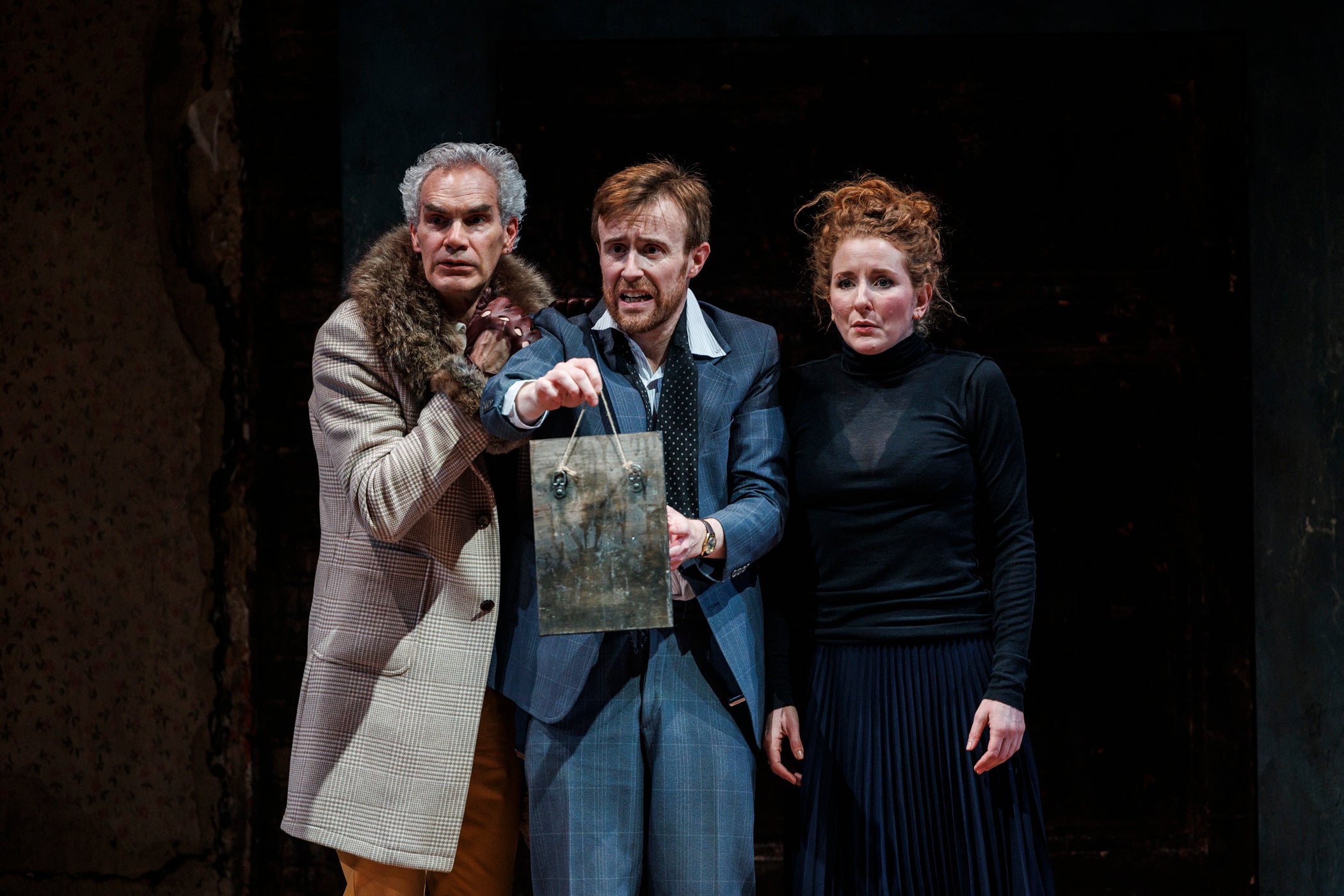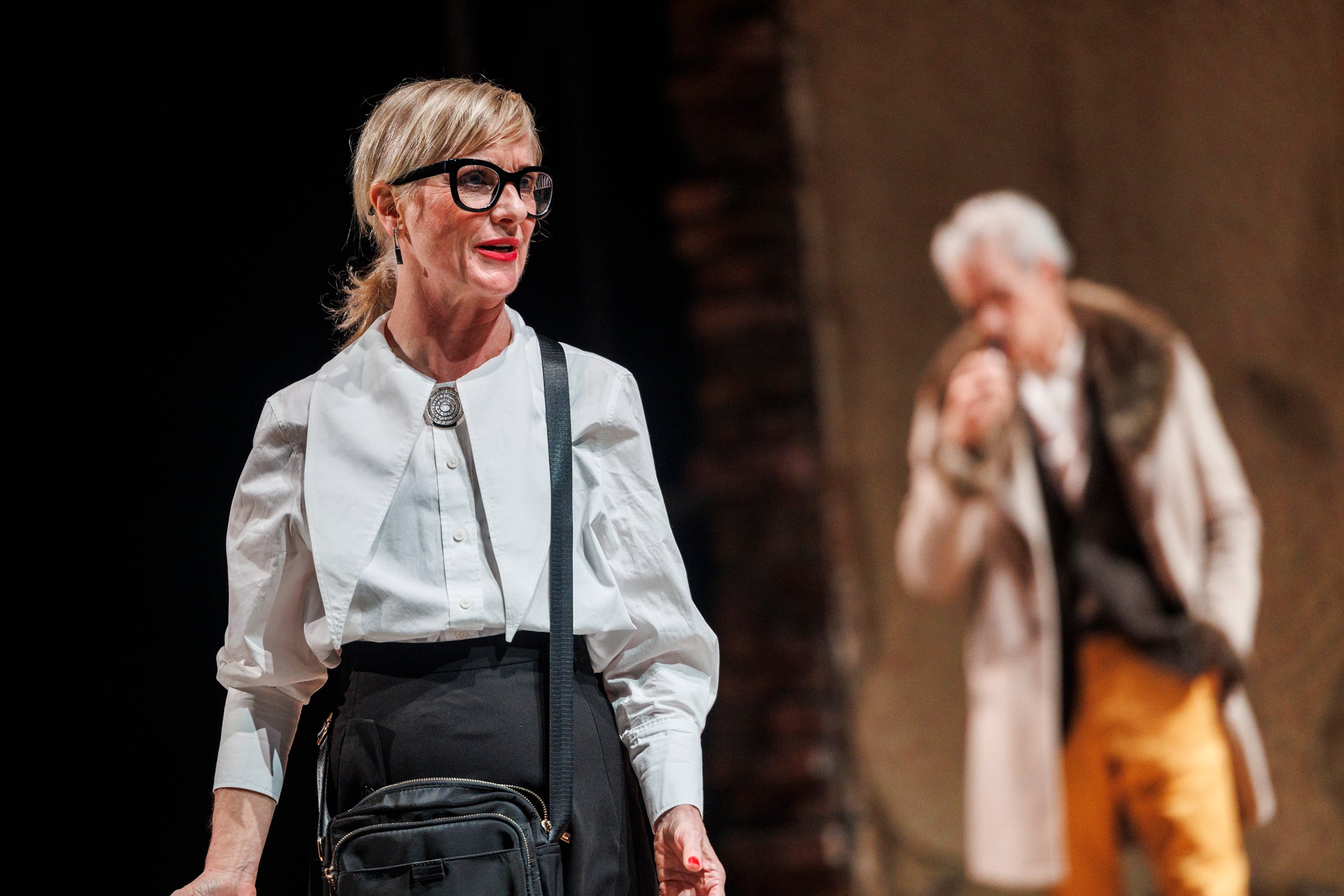Nachtland review: A dark, unsettling drama about finding Hitler’s art in the attic
Jane Horrocks plays an art expert in this unsettling, endlessly fascinating drama about a pair of siblings who, upon discovering a shocking heirloom in the loft, must grapple with their family’s complicated history

You’re never quite on solid ground with Marius von Mayenburg’s destabilising, endlessly fascinating new play. The set-up is a classic Cash in the Attic-type scenario, where two German siblings discover a painting in their dead Dad’s loft and dismiss it as a bit of competent kitsch... until they see that it’s signed “A Hitler”. Their resulting moral dilemma could easily produce a worthy debate play, but this Patrick Marber-directed concoction is packed full of lurid surprises, sharp tonal shifts and David Bowie dance breaks.
It’s not quite as much fun as that makes it sound, but it’s still pretty great. The uniformly strong cast nail the heightened tone here, declaring their inner turmoil straight out to the audience as they excavate Germany’s barely hidden Nazi past. John Heffernan makes a hilariously pompous, dreamy Philipp: at first, he’s bullied by his more strident sister Nicola (Dorothea Myer-Bennett, replacing Romola Garai who left the cast last month), but soon they’re conspiring together to embellish the story of their once-embarrassing Nazi grandma Greta for the benefit of slathering art expert Evamaria (Jane Horrocks).
Naturally, Philipp’s Jewish wife Judith (Jenna Augen) is horrified. And the most obvious criticism of Von Mayenburg’s work here is that he makes this one character the play’s whole conscience, responsible for exposing all the moral ugliness of a sibling duo who are happy to exhume their Nazi forebears just for a sweet house deposit.

It’s fascinating watching Nachtland as a British person raised on jolly, self-aggrandising narratives of Second World War heroism. Everyone in it has a far more morally complicated relationship with their family’s past, guilt and pride layered together. Nicola and Philipp have spent most of their lives telling half-truths about their grandparents, choosing sentimentality over the harsh realities of party memberships. And Evamaria acknowledges that Germany’s current manufacturing prowess has deep Nazi roots in a way that seems rueful, at first, before her coded admiration for Hitler’s efficiency shines through. Only Judith sees the rot, but she’s constantly othered and undermined by everyone else as her fury grows.
This play’s real horror is found in images, not words. Nicola’s partner Fabian (Gunnar Cauthery) is turned into a foul, stained, zombie-like presence, a metaphor for her all-consuming greed. And art collector Kahl (Angus Wright) is still more sinister, with the lumbering, camp, white-haired Wright sucking out the lifeblood of this twisted family unit, dancing like a 6am relic from the bowels of a Berlin nightclub.
Marber’s staging is fleet-footed and slick, creating abrupt transitions between semi-naturalism and mesmerising strangeness. Still, it sometimes feels a bit too quick to mop up and move on after Nachtland’s darkest moments, instead of letting their impact linger. When the lights go up it’s a surprise, the audience offered an unexpectedly early release from the mess that’s gone before, unsure whether to applaud. It’s a typically unsettling conclusion to a play that’s hard to classify – but easy to watch, bewildered and enraptured all at once.
Young Vic, until 20 April



Join our commenting forum
Join thought-provoking conversations, follow other Independent readers and see their replies
Comments